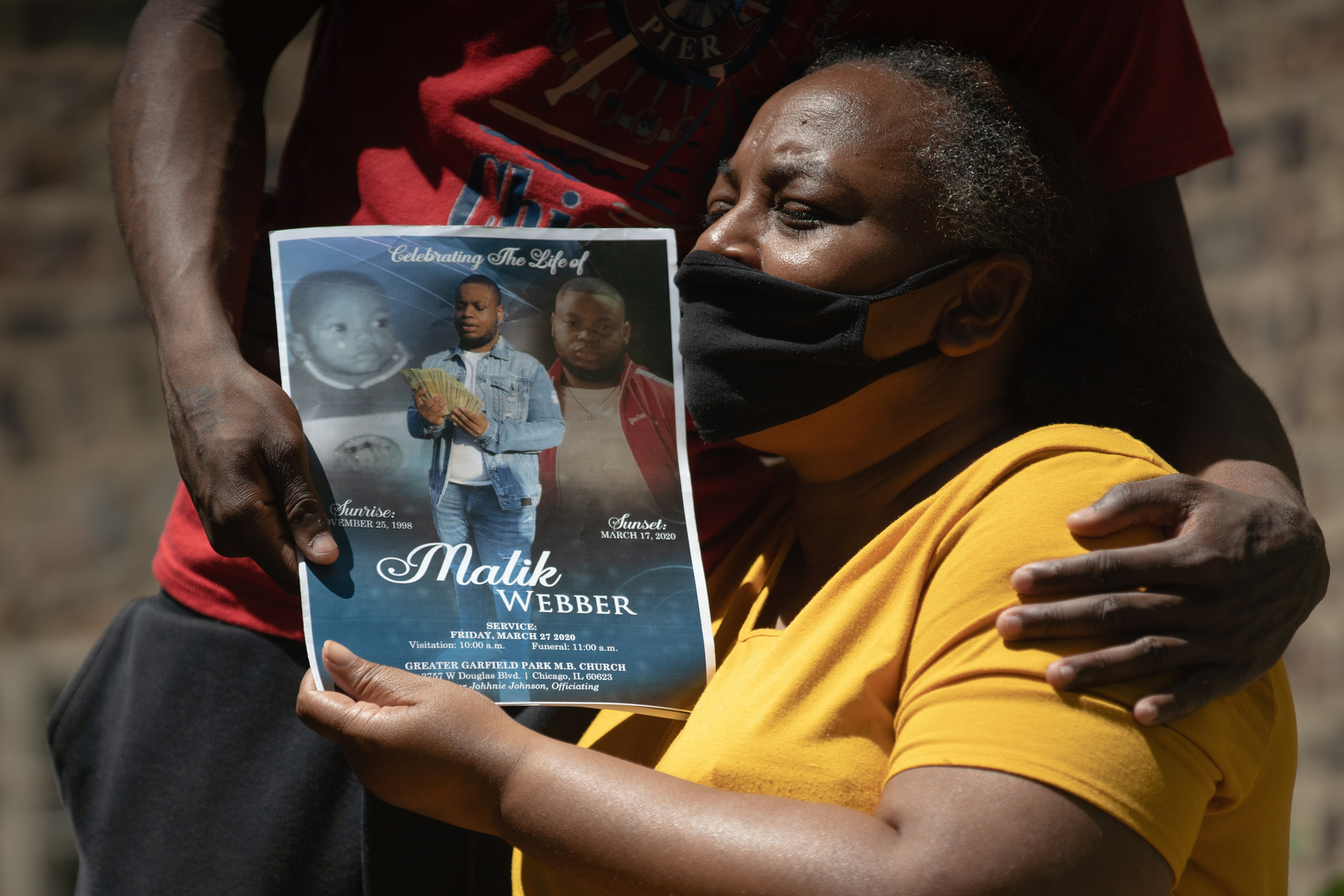Cook County health officials say they are developing a suicide prevention plan in response to an alarming increase in suicides among Black residents this year.
At an August 4 news conference, officials said the plan would be released in stages, with a comprehensive version published by the end of the year. They did not provide specifics on the plan’s content or cost. In addition to the plan, officials said they had started training health care providers on suicide prevention.
The announcement comes days after a report by The Trace, co-published by the The Chicago Sun-Times, that found that Cook County has already recorded more suicides of Black residents as of mid-July than in all of last year. If the pace continues, 2020 could see more Black suicides than any year in a decade.
“This is horrifying,” said Cook County Board President Toni Preckwinkle. “It’s not surprising the communities that suffered the most are the ones who also have the least. The disinvestment, the redlining, [and] the systemic racism have culminated in a crisis that once again hits the African-American community the hardest. We have no choice but to do better.”
Diane Washington, the director of behavioral health for Cook County Health, described the effort as “all-hands-on-deck,” and said the county has to develop relationships in order to expand existing health services in communities of color.
“African-Americans are in some of the most vulnerable communities in the Chicagoland, including the South Side and the West Side, and that hasn’t changed for a long period of time,” said Washington. “So we have to address this issue head on, early, and try to manage it and provide structures to make that happen.”
Washington said the county’s Behavioral Health Consortium, an initiative launched in 2016, is working with community partners to spread awareness about mental health services.
Chicago has just five city-funded mental health clinics for its nearly three million residents following a closure of six clinics in 2012 under then-Mayor Rahm Emanuel. A separate, publicly funded health clinic is now operated by the Cook County Health. Mental health advocates and professionals told The Trace that the remaining private and nonprofit services available are not enough to meet the current need. Some private clinicians and therapists say their client load has doubled during the pandemic.
Both the county and the Chicago Department of Public Health have expanded telehealth services during the pandemic. CDPH said it is planning to issue proposals to expand existing mental health services and to create a suicide prevention plan. The city has also allocated $1 million to suicide prevention services.
Amika Tendaji, a longtime mental health advocate and the executive director of Black Lives Matter Chicago, described the city’s existing public mental health services as “just not good enough.”
“It’s intentional disinvestment in public health to offload to privatized services,” she said.
While Washington acknowledged that many Black Cook County residents face barriers to accessing services, she also said that stigma attached to mental illness in Black communities is “huge.” She added that Black men and youth are plagued by systemic racism, in addition to not having grandmothers “who would pick up the slack.”
“This rise in suicides is due to a pandemic that has us in an economic crisis, people don’t have what they need, this is not because grandmothers are less accessible,” Tendaji said.
The uptick in suicides coincides with historic increases in gun violence and opioid overdoses in Cook County, all of which disproportionately affect Black men. More than 40 percent of Black suicide deaths this year involved a gun; the median age of the victims was 36, and the youngest was 9 years old, according to medical examiner data. Most of the deaths occurred in Chicago, on the city’s South and West Sides, data shows.
“By the time these residents come to our office,” said Chief Medical Examiner Dr. Ponni Arunkumar, “it is too late.”


